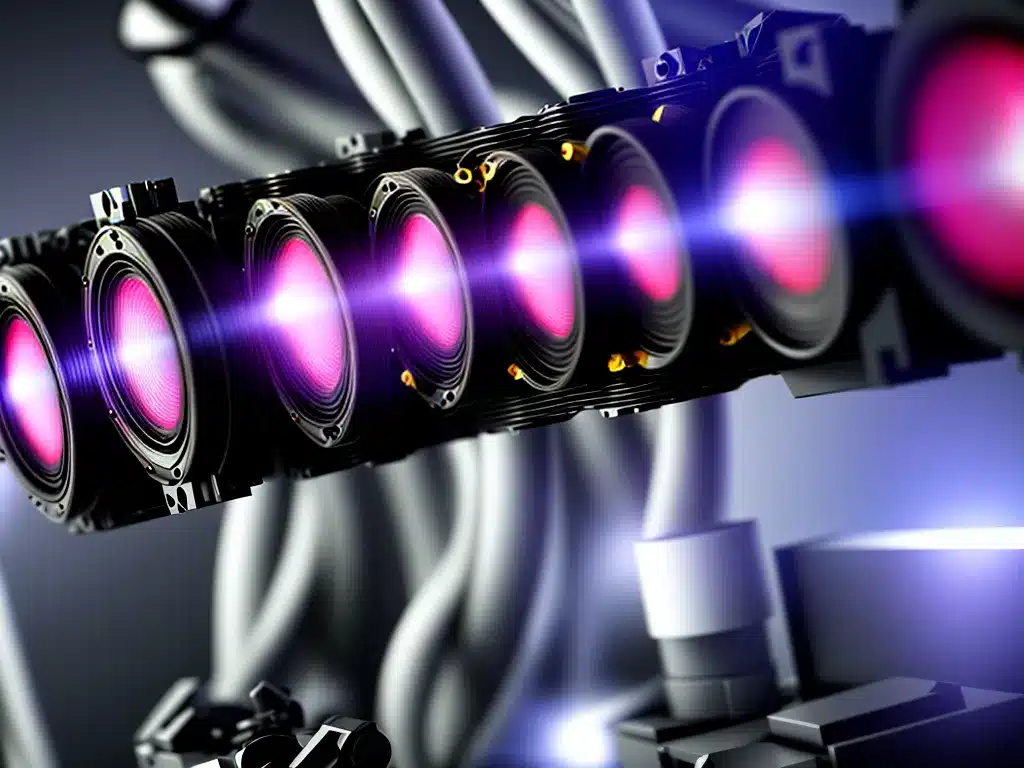
Introduction
Optical computing is a new and exciting field of computer science that uses photons instead of electrons to process and transmit information. Photons move much faster than electrons and allow for faster computation and data transfer. British scientists have recently made a major breakthrough in optical computing that could lead to faster and more efficient computer systems. In this article, I will provide an overview of optical computing, discuss the recent British breakthrough, and explain why it is so significant.
What is Optical Computing?
Optical computing uses photons or light particles to process data and perform computations, as opposed to traditional electronic computers that use electrons. It encodes data as optical pulses that can travel at the speed of light. Optical computers encode information using light waves and optical signals. The fundamental units are photons rather than electrons.
Some key advantages of optical computing include:
-
Faster speed – Photons move much faster than electrons, so optical computers can operate at speeds 100-1000 times faster than electronic computers. This leads to faster data processing and transmission.
-
Higher bandwidth – Photons can be packed more densely allowing greater bandwidth and parallelism. More data can be transmitted simultaneously.
-
Less heat – Photons generate less heat compared to electron flow, so optical computing consumes less power and requires less cooling.
-
No electromagnetic interference – Photons do not interact with each other like electrons. This avoids electromagnetic noise and crosstalk issues.
Optical computing has potential applications in high-speed communications, image processing, cryptography, and solving complex mathematical problems faster than traditional supercomputers. However, optical computing technology is still in the early stages of development.
The British Breakthrough
Researchers at the University of Bristol have achieved a major milestone in optical computing. They were able to develop a new type of optical chip that can process information using light and pioneer a new approach to optical computer engineering.
Specifically, the researchers created an optical microchip that can carry out complex algorithms like those used in mathematics and computer science. The chip uses laser light to perform computations in a radically new way.
Previous optical chips were limited to very simple functions like switching bits on and off. This new technology allows more sophisticated information processing possible entirely with light. The chip can run mathematical functions using specially designed laser beams that interact and interfere with each other in precise ways.
This opens the door to optical computers that encode and manipulate information using interconnected light beams instead of electricity. It represents a giant leap forward from simple operations to complex programmable computation.
Why This Matters
This breakthrough is incredibly significant for the future of high-speed computing in several ways:
-
It overcomes a key barrier holding back optical computing – the inability to perform complex algorithms optically. With this technology, sophisticated computational problems can now be solved using light.
-
It enables a new computing paradigm – programmable photonic computing – that does not rely on electrons at all. Information can be encoded and processed using only photons.
-
It allows for massively parallel operations. The interference of multiple light beams can perform many parallel operations simultaneously.
-
It suggests that full-fledged optical computers that operate entirely with photons are feasible in the future. Optical computing has moved from theory to reality.
-
It will enable new applications for optical computing like ultra-fast data centers, AI acceleration, financial modeling, and scientific computing.
This breakthrough ushers in a new era of high performance computing using the power of light. Thanks to these visionary British scientists, the future of faster computing looks incredibly bright. Their pioneering work moves us notably closer to realizing the long-held dream of powerful optical computers.
Conclusion
The University of Bristol researchers have achieved an impressive milestone in optical computing. By developing an optical chip that can perform complex algorithms, they have overcome a key barrier and enabled programmable photonic computing. This breakthrough suggests optical computers that operate entirely with light are viable, opening the door to orders of magnitude increases in computing speed and performance. It represents major progress in making optical computing practical and ushers in an exciting new frontier in high speed computing.












